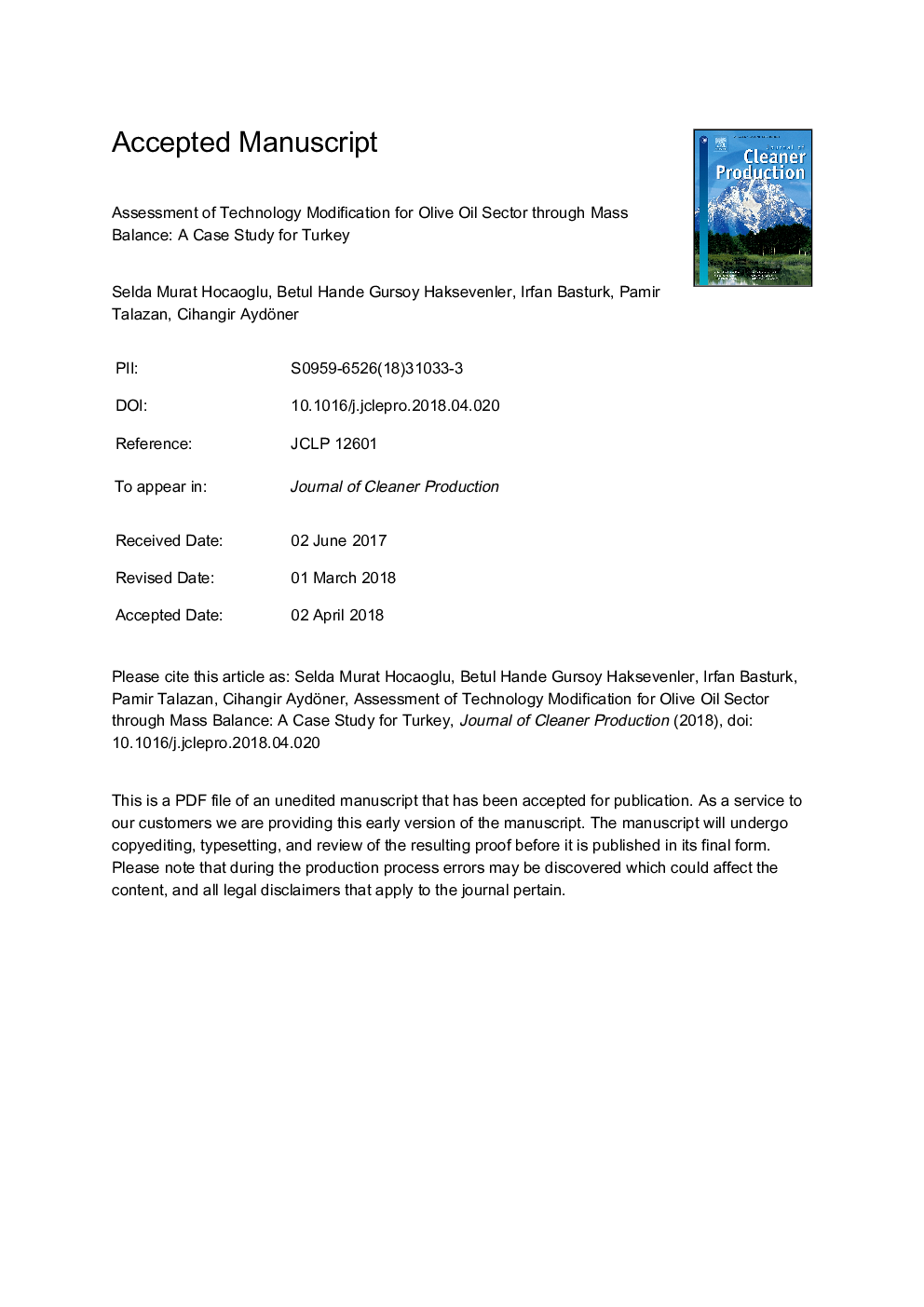| Article ID | Journal | Published Year | Pages | File Type |
|---|---|---|---|---|
| 8095648 | Journal of Cleaner Production | 2018 | 23 Pages |
Abstract
Olive oil production plays an important role in the economies of Mediterranean countries. However, the environmental impact of the sector is significant due to highly recalcitrant and polluted characteristics of its wastewater. In this study, mass balance equations were formulated to estimate water consumption, olive oil yield, and wastewater and pomace generation. The mass balance equations indicated that a two-phase production process with 4,000 tons of olives revealed a water consumption by 1,360â¯m3 and a generation of wastewater by 1,120â¯m3 and of pomace by 3,280 tons; while a three-phase production process with 4,000 tons of olives revealed a water consumption by 3,760â¯m3 and a generation of wastewater by 4,776â¯m3 and of pomace by 2,036 tons. It is predicted that a switch from three-phase to two-phase processing technology in Turkey will result in a water usage decrease by 59%, a wastewater generation decrease by 70% and a COD load reduction by 98.7%, while increasing the pomace generation by 36%. The estimated total cost of the technology switch from a three-phase operation with a capacity of 4,000 tons of olives/season varies from â¬50,000 to â¬150,000 depending on the decanter technology used. The overall cost of switching to the two-phase technology for the entire sector in Turkey is estimated to range from 17 million Euros to 25 million Euros. The calculation method developed in this study may help olive oil producers to determine an optimal production process.
Related Topics
Physical Sciences and Engineering
Energy
Renewable Energy, Sustainability and the Environment
Authors
Selda Murat Hocaoglu, Betul Hande Gursoy Haksevenler, Irfan Basturk, Pamir Talazan, Cihangir Aydoner,
